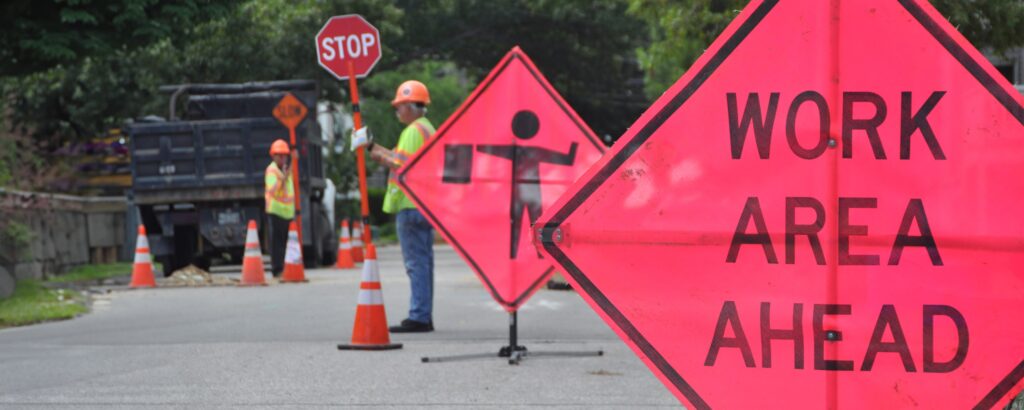The line to apply for a technical job currently isn’t long. In fact, the construction industry, of which tradespeople like plumbers, electricians, carpenters, masonry workers and HVAC technicians are the backbone, is facing one of its biggest shortages in history. Forecasts by the Associated Builders and Contractors (ABC) show the construction industry will need to attract an estimated 546,000 additional workers on top of the normal pace of hiring in 2023 to meet the demand for labor. But even though on average these jobs pay $44,564 and above, Gen Z, the youngest working generation isn’t interested in applying.
According to NPR, one recruiting platform reported that the application rate for young people seeking technical jobs dropped by 49% in 2022 compared to 2020. That isn’t to say Gen Z isn’t working, they’re still applying for jobs like respiratory therapists, automotive technicians and equipment installers, but they’re turning their noses up at trade positions. So why aren’t young people interested in construction? The answer as to why may lie in who this generation is as a whole.
Who is Gen Z?
Generation Z or Gen Z is the youngest generation working in the United States. Born between 1997-2012, Gen Z, along with their closest counterparts, Millennials, now make up more than 50% of the US’ population. But what’s more, Gen Z is the country’s most diverse generation. The percentage of minority Gen Z adults is the highest among all generations with nearly half (49.8%) being non-white. Gen Z is a mirror showing the country how its population is changing.
This generation also champions diversity. Gen Z demands diversity, equity and inclusion (DE&I) in their workplace, schools and the brands they associate with. Gen Z has grown up with digital media and they push for social change like racial equity and climate change, according to Insider Intelligence. In fact, Gen Z has used technology all their lives, which makes them unique amongst the generations.
The oldest Gen Zers were 10 when the iPhone launched in 2007, according to Pew Research. Their choice of communication has always been through mobile devices, primarily via social media. Gen Z prefers video and images and communicates with images and multitasking across multiple screens. Because of this, their attention spans may tend to be shorter.
Understanding who makes up Gen Z, what they care about and how they communicate can give insight about what they want on the job.
What Does Gen Z Want at Work?
Not since Millennials have companies tried to understand how to recruit and manage a generation. Spending their formative years during the pandemic, Gen Z are redefining the workplace, and many or not content with the 9 to 5 status quo. For example, Gen Z are turned off by heavy-handed upper management, long work hours and wages barely above minimum.
According to Forbes,
- 96% of Gen Zers say it’s important they feel valued, included and empowered at work.
- 80% of Gen Zers prefer a job that allows them to explore and grow various skillsets, rather than a job that is focused on a particular set of skills.
- 79% of Gen Zers value having a manager that cares about their personal development as much as their professional development.
Beyond company culture, Gen Z wants tangible benefits including:
- Pay well above the minimum wage.
- Great benefits packages.
- Free food.
- Flexibility
How can the construction industry attract these workers?
The industry needs to actively and passively recruit young workers by educating them about the industry and its benefits. And it needs to connect the dots in terms of what construction offers that Gen Z wants.
Introduce Young People to Construction Early
Sharing the opportunities available for young people in construction requires going to them. Participating in school fairs is a good first step, but there are other, more hands-on avenues you can take. Let local high schools know your company is available as a field trip location. Giving students a close-up view of what a job site is really like will reveal all the complexities of construction work. You can also offer hands-on experience by inviting students to help build special projects, under supervision. Or, develop a mentorship program where high school students can come work under the supervision of crew members during school breaks.
Share the benefits young people will receive by choosing a career in construction. Include these benefits in your recruitment materials.
Start Earning from Day One
Even those who choose an apprenticeship get paid while learning instead of simply accruing debt. According to Construction Executive, the average hourly wage for a skilled laborer is $21.21, allowing young people to earn about $44,564 per year. And construction employment offers several opportunities to advance, building upon that initial salary year after year.
Share What Construction Workers Earn
The construction industry offers several high-paying positions that only require a high school diploma or the equivalent. According to the Bureau of Labor Statistics, construction employees can earn more than $45,000 per year working in a number of specialties.
|
Occupation |
Entry-Level Education |
2021 Median Pay |
|
Boilermaker |
High School Diploma or Equivalent |
$64,290 |
|
Carpenters |
High School Diploma or Equivalent |
$48,260 |
|
Construction and Building Inspectors |
High School Diploma or Equivalent |
$61,640 |
|
Construction Equipment Operators |
High School Diploma or Equivalent |
$48,290 |
|
Electrician |
High School Diploma or Equivalent |
$60,040 |
|
Glaziers |
High School Diploma or Equivalent |
$47,180 |
|
Hazardous Materials Removal |
High School Diploma or Equivalent |
$46,300 |
|
Ironworkers |
High School Diploma or Equivalent |
$57,160 |
|
Plumbers, Pipefitters and Steamfitters |
High School Diploma or Equivalent |
$59,880 |
|
Sheet Metal Workers |
High School Diploma or Equivalent |
$53,440 |
|
High School Diploma or Equivalent |
$47,670 |
Illustrate the Variety
The construction industry offers a variety of entry-level career pathway options for young people in construction. Areas of construction for entry-level work include: carpentry, general contractor, landscape, painting, commercial construction, flooring and tile, masonry and roofing. And once workers start learning skills, the options are endless. Construction jobs range from laborer to CFO and owner. Skilled jobs from an apprenticeship or community college include:
- Journeyperson
- Master Craftsman
- Crew Leader
- Foreman
- Administration
- Tech Support
- Draftsperson
- Estimator
- Project Manager
- Safety
- Senior Management
- Vice President
Gen Z won’t magically flock to construction if they don’t understand the opportunities available to them. Be Gen Z-specific with your recruiting materials by including the benefits that this generation wants most including pay, benefits, a supportive culture, the ability to continually learn new skills and the opportunity to contribute to society in a meaningful and tangible way.
Learn more ways to hire during the labor shortage by reading these blogs:
- The Importance of Women In Construction: How Hiring More Women Eases Labor Shortage Concerns
- Top Construction Workforce Challenges in 2023
And, check out AGC’s Workforce Summit Report that includes best practices and new ideas from construction workforce professionals.



